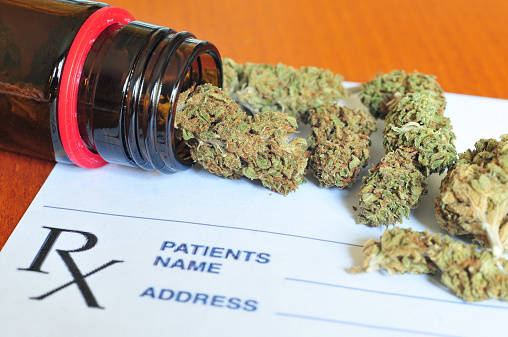In the summer of 2016, Ohio lawmakers passed HB 523, making medical marijuana legal across the state. Medical marijuana has been reported to help conditions like chronic pain, nerve pain, nausea and vomiting, glaucoma and other conditions.
And while many users prefer it to traditional medications, which may be less effective or have unwanted side effects, there is a lot to know about medical marijuana. Let’s look at some of the things to consider about this emerging treatment.
Medical Marijuana versus Recreational Marijuana
You might be wondering if there’s a difference between medical marijuana and marijuana used for recreational purposes. Marijuana is considered medicinal if it’s dispensed to a state-qualified patient from a medical marijuana dispensary. Recreational marijuana, on the other hand, is any marijuana used without medical justification. Medical marijuana is usually dispensed in higher doses and in higher potency than recreational.
What You Should Know About Medical Marijuana
Not Just Any Doctor Will Do
Just because marijuana can be used for medicinal purposes and you qualify for its use, it doesn’t mean that any medical doctor can help you get your hands on the plant. In order to receive medical marijuana, you must first get a recommendation from a certified medical marijuana physician. These physicians have to:
- Examine patients who smoke marijuana for pulmonary and immune function
- Comply with state initiatives to track marijuana sources and patients using it for medical purposes
- Counsel you on the risks of medical marijuana
- Get training or certification in addiction medicine
- Review uses and dosing recommendations
Edibles are Not Low-Risk
Though they may look like harmless treats, edibles could contain up to 10mg of THC, in addition to CBD. A study evaluating cannabis-triggered emergency room visits in Denver found that edibles induced a disproportionate amount of marijuana-triggered emergencies. Researchers found edibles were more likely than inhaled marijuana to cause severe intoxication and acute psychiatric symptoms in people with no history of psychiatric illness.
And because edibles take longer than inhaled pot to take effect, the possibility of consuming too much increases, which raises the risk for unwanted side effects and emergencies.
There’s Not Much Evidence on its Effect on Humans
Cannabis is a Schedule I controlled substance equal to LSD, heroin, and street fentanyl, according to the DEA. Because of this, doctors can’t prescribe it (only give permission for you to use it) and it is difficult for scientists to obtain and study in a lab. As a result, there is limited evidence on how marijuana affects humans.
Ohio’s Marijuana Laws
While medical marijuana is legal in Ohio, it’s only approved to use with certain conditions. You can qualify for a medical marijuana card if you have:
- Crohn’s disease or inflammatory bowel disease
- A spinal cord injury
- Epilepsy
- Parkinson’s disease or multiple sclerosis
- Tourette syndrome
- Alzheimer's disease
- Traumatic brain injury
- Chronic pain
- Sickle Cell Anemia
- Glaucoma
- Fibromyalgia
- Cancer
- PTSD
- Hepatitis C
- HIV/AIDS
- ALS










